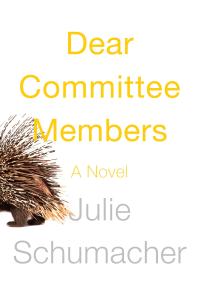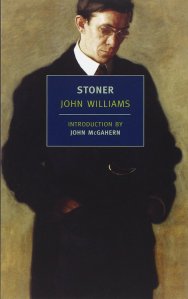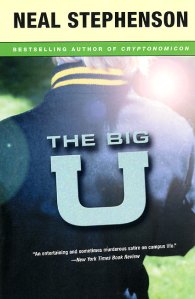August 20, 2018 – The New Republic
By
August 20, 2018 – The New Republic
By
Posted in Bez kategorii, campus novel, college novel, The New Republic
Tagged Changing Places, David Lodge, Dear Committee Members, Elif Batuman, John Williams, Julie Schumacher, Kingsley Amis, Lucky Jim, Malcolm Bradbury, Mary McCarthy, Nice Work, Pictures from an Institution, Pnin, Randall Jarrell, Small World, Stoner, The Groves of Academe, The History Man, The Possessed, The Shakespeare Requirement, Vladimir Nabokov
June 5, 2016 – chronicle.com
August 7, 2014 – Slate
Strongest Possible Endorsement by Rebecca Schuman
 “For Dear Committee Members isn’t really an academic novel, or even an academic satire (since most of its depictions of Payne University barely count as hyperbole). It’s a sincere exploration of the depths and breadths of human selfishness, and the contemporary American academy is simply the backdrop, precisely because nowhere else could Fitger’s particular sort of self-obsession be given the autonomy to both metastasize and self-immolate. So in the end, it is exactly Fitger’s selfishness that destructs, rather than his life—and although his semi-redemption may not redeem the rank carcass of academic culture that continues to fester around him, it’s more than enough to recommend this mischievous novel.”
“For Dear Committee Members isn’t really an academic novel, or even an academic satire (since most of its depictions of Payne University barely count as hyperbole). It’s a sincere exploration of the depths and breadths of human selfishness, and the contemporary American academy is simply the backdrop, precisely because nowhere else could Fitger’s particular sort of self-obsession be given the autonomy to both metastasize and self-immolate. So in the end, it is exactly Fitger’s selfishness that destructs, rather than his life—and although his semi-redemption may not redeem the rank carcass of academic culture that continues to fester around him, it’s more than enough to recommend this mischievous novel.”
August 13, 2014 – NPR
In A Funny New Novel, A Weary Professor Writes To ‘Dear Committee Members’ by Maureen Corrigan
Posted in campus novel, college novel, Inside Higher Ed, Slate, The Chronicle of Higher Education
Tagged Changing Places, David Lodge, Dear Committee Members, Disgrace, Don DeLillo, J.M. Coetzee, John Williams, Jonathan Franzen, Joyce Carol Oates, Julie Schumacher, Kingsley Amis, Lucky Jim, Malcolm Bradbury, On Beauty, Pale Fire, Philip Roth, Pnin, Small World, Stoner, The Accursed, The Corrections, The History Man, The Human Stain, Vladimir Nabokov, White Noise, Zadie Smith
 “Whatever the reasons for its cooler reception in the US, I don’t agree that the novel is ‘minor’; nor do I think it is ‘great’ in the way that, say, Gatsby or Updike’s Rabbit quartet are great. I think Williams himself got it right: it is ‘substantially good.’ It is good, and it has considerable substance, and gravity, and continuation in the mind afterwards. And it is a true ‘reader’s novel,’ in the sense that its narrative reinforces the very value of reading and study. Many will be reminded of their own lectoral epiphanies, of those moments when the magic of literature first made some kind of distant sense, first suggested that this might be the best way of understanding life. And readers are also aware that this sacred inner space, in which reading and ruminating and being oneself happen, is increasingly threatened by what Stoner refers to as ‘the world’ – which is nowadays full of hectic interference with, and constant surveillance of, the individual. Perhaps something of this anxiety lies behind the renaissance of the novel. But you should – indeed must – find out for yourself.”
“Whatever the reasons for its cooler reception in the US, I don’t agree that the novel is ‘minor’; nor do I think it is ‘great’ in the way that, say, Gatsby or Updike’s Rabbit quartet are great. I think Williams himself got it right: it is ‘substantially good.’ It is good, and it has considerable substance, and gravity, and continuation in the mind afterwards. And it is a true ‘reader’s novel,’ in the sense that its narrative reinforces the very value of reading and study. Many will be reminded of their own lectoral epiphanies, of those moments when the magic of literature first made some kind of distant sense, first suggested that this might be the best way of understanding life. And readers are also aware that this sacred inner space, in which reading and ruminating and being oneself happen, is increasingly threatened by what Stoner refers to as ‘the world’ – which is nowadays full of hectic interference with, and constant surveillance of, the individual. Perhaps something of this anxiety lies behind the renaissance of the novel. But you should – indeed must – find out for yourself.”
December 13, 2013 – The Guardian
Stoner: the must-read novel of 2013 by Julian Barnes
http://www.theguardian.com/books/2013/dec/13/stoner-john-williams-julian-barnes
January 22, 2014 – livemint
John Williams’ ‘Stoner’: A triumph of literature over common sense by G. Sampath
June 6, 2013 – The Millions
A Forgotten Bestseller: The Saga of John Williams’s Stoner by Claire Cameron
August 23, 2013 – Die Presse
“Stoner”: Spröde, aber meisterlich by Eva Steindorfer
http://diepresse.com/home/kultur/literatur/1444883/Stoner_Sprode-aber-meisterlich
 “Even when you have finished your schooling, it’s hard to forget the gut-churning excitement, the strange objectless yearnings, that accompany the beginning of the academic year. This is as true, I think, for kindergartners as it is for those completing their final year of college (graduate school, by all reports, is another, far more hellish story). But it is perhaps most intense during our undergraduate days. This mingled ease and pain attains to a special plangency in America, where the past, perhaps because we have so little of it, becomes mythic almost immediately, which I proffer as a reason for the preponderance of American books among those mentioned below. Or you can blame my deep-seated jingoistic urges […] here are eight of the very best books providing the drug of nostalgia we all crave, now that we’re sliding down—as Tom Lehrer once sang—the razor blade of life.”
“Even when you have finished your schooling, it’s hard to forget the gut-churning excitement, the strange objectless yearnings, that accompany the beginning of the academic year. This is as true, I think, for kindergartners as it is for those completing their final year of college (graduate school, by all reports, is another, far more hellish story). But it is perhaps most intense during our undergraduate days. This mingled ease and pain attains to a special plangency in America, where the past, perhaps because we have so little of it, becomes mythic almost immediately, which I proffer as a reason for the preponderance of American books among those mentioned below. Or you can blame my deep-seated jingoistic urges […] here are eight of the very best books providing the drug of nostalgia we all crave, now that we’re sliding down—as Tom Lehrer once sang—the razor blade of life.”
8/13/2012 – The Daily Beast
Must-Read College Novels: From “Lucky Jim” to “Pnin” by Sam Munson
“Indulging in some late-August back-to-school nostalgia, the Daily Beast put together a list of “Must-Read College Novels” ranging from Kingsley Amis’Lucky Jim to John Williams’ Stoner. As a fan of college, books, and college books, I thought I’d work up a supplementary list: the principal ingredients that no college novel can do without.”
8/27/2012, The Airship
Back to School: A List of Essentials for the College Novel by Kayla Blatchley
http://airshipdaily.com/blog/back-school-list-essentials-college-novel
Posted in campus novel, college novel, Lists, Rankings, Themes
Tagged Bret Easton Ellis, Donna Tartt, John Williams, Kingsley Amis, Less Than Zero, Lucky Jim, Martin Amis, Mary McCarthy, Michael Chabon, Nathan Harden, Neal Stephenson, Penelope Fitzgerald, Pnin, Richard Russo, Sex and God at Yale, Stoner, Straight Man, The Big U, The Gate of Angels, The Groves of Academe, The Rachel Papers, The Secret History, Vladimir Nabokov, Wonder Boys
 “I’ve always been drawn to novels set in the academy. I like the parochial closed world in which incompatible people are forced to come to terms with one another. I like the relatively high tolerance for oddity and the relatively low threat of physical violence. I like characters who speak in complete sentences, use lofty vocabulary and sprinkle their repartee with literary references.”
“I’ve always been drawn to novels set in the academy. I like the parochial closed world in which incompatible people are forced to come to terms with one another. I like the relatively high tolerance for oddity and the relatively low threat of physical violence. I like characters who speak in complete sentences, use lofty vocabulary and sprinkle their repartee with literary references.”
September 6, 2011, The Wall Street Journal
Back to School by Cynthia Crossen
Posted in campus novel, college novel, The Wall Street Journal
Tagged A New Life, Allegra Goodman, Bernard Malamud, Changing Places, David Lodge, Donna Tartt, Elaine Showalter, I am Charlotte Simmons, Intuition, Jane Smiley, Joanne Dobson, John Williams, Joseph Epstein, Moo, Nice Work, Richard Russo, Small World, Stoner, Straight Man, The Secret History, Tom Wolfe